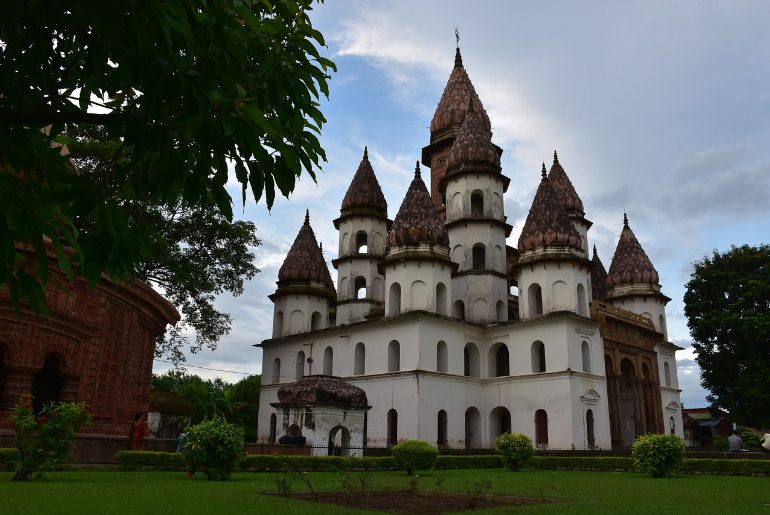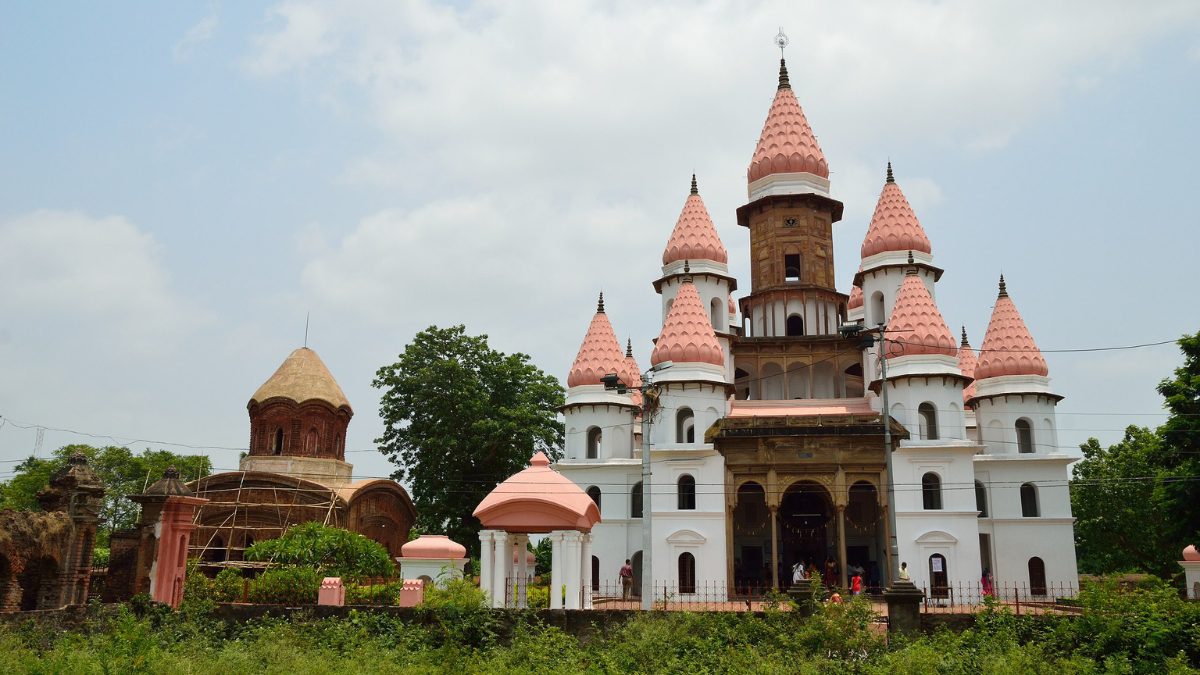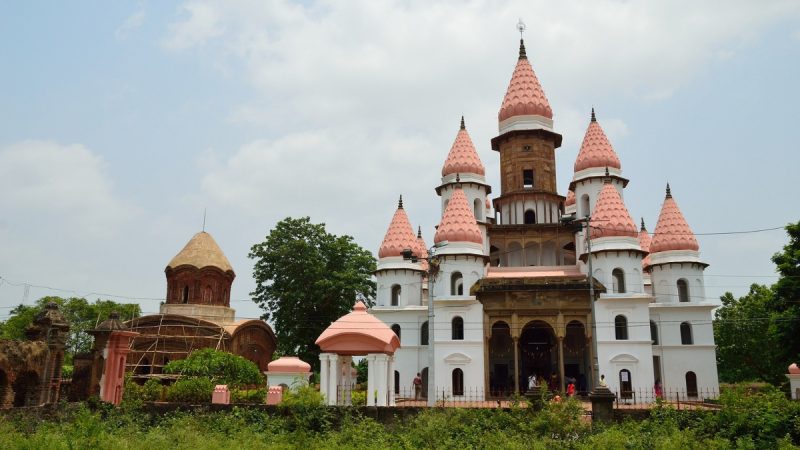Just about an hour away from Kolkata lies something truly magical, the Hangseswari Temple in Bansberia, West Bengal. This isn’t your usual temple that boasts history; it has heart, mystery, and a design so unique, you’ll stop to admire it. Whether you’re spiritual, curious about architecture, or simply looking to explore something new and offbeat, this temple is definitely worth your time.
Hangseswari Temple Is A Beautiful Hidden Gem Near Kolkata

The story begins in the late 1700s when Raja Nrisingha Deb Roy saw Goddess Kali in a dream. She asked him to build a temple, and so, in 1799, he laid the foundation of what would become the Hangseswari Temple, dedicated to Maa Hangseswari, a form of the powerful goddess Kali.
Sadly, the king passed away before the construction of the temple could be finished. That’s when his wife, Rani Sankari, took on the responsibility and completed the temple in 1814. She didn’t just finish the work; she made it something unforgettable. At first glance, the temple looks like it’s straight out of a storybook. Instead of the usual domes or towers, this temple has 13 tall spires, each shaped like a lotus bud.
Step inside, and you’ll find something even more fascinating. Not just dedicated to a deity, the structure of this unique temple represents the human body. It follows a rare spiritual idea called Tantrik Satchakrabhed. This belief talks about the energy paths in our body, known in yoga and tantra as nadis.
The temple has five levels, each said to represent a part of the body: Bajraksha (eye), Ira (left energy channel), Pingala (right energy channel), Chitrini, and Sushumna (the central energy path in the spine). At the top of the tallest spire, there’s even a metal idol of the Sun God with rays spreading out—like a beacon of light and energy.
Also Read: What Is Pathimugam, The Antioxidant-Rich Pink Drink That’s Been Healing Kerala For Centuries?
Bansberia’s Hidden Gem
Inside the temple, the main idol is Maa Hangseswari, a form of Goddess Kali. The wooden idol sits on a lotus stalk rising from the navel of a lying Shiva, symbolising balance, creation, and cosmic energy.
The Hangseswari Temple is part of a bigger temple complex that includes the Ananta Basudeba Temple and the Swanbhaba Kali Temple. Built in 1679, the Ananta Basudeba Temple is covered in terracotta tiles that tell stories from the Mahabharata, the life of Krishna, and scenes from old royal times. Swanbhaba Kali Temple was built in 1788 by the same king who started Hangseswari.
This temple isn’t just a place of prayer; it’s a place of stories, energy, and rare beauty. It blends spirituality, science, and art in ways that you won’t find anywhere else. Plus, with peaceful surroundings, old-world charm, and nearby temples to explore, it makes for the perfect day trip from Kolkata.
Where: X97X+PW7, Bansberia Rd, Bansberia, Mithapukur More, West Bengal
When: 9 am – 11 am; 5 pm – 7 pm
Cover Image Courtesy: Wikimedia Commons/Biswarup Ganguly
For more such snackable content, interesting discoveries and the latest updates on food, travel and experiences in your city, download the Curly Tales App. Download HERE. First Published: July 15, 2025 2:54 PM




